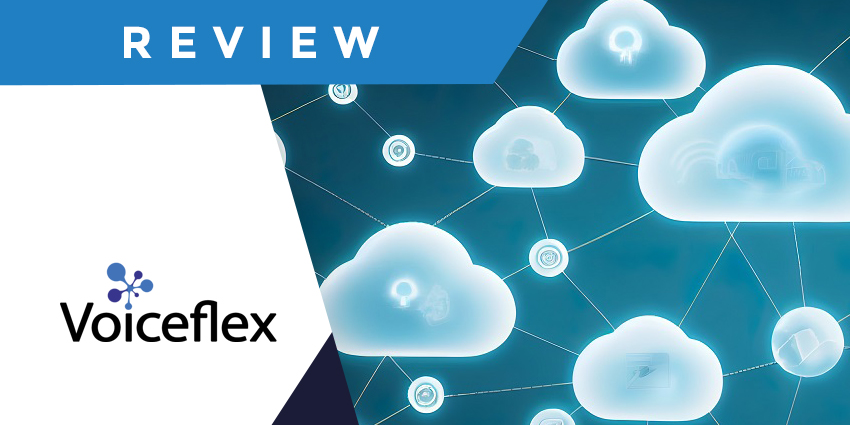Technology has always been a driver of innovation and improvement in business communications, and beyond that, of processes and workflow in general.
Imagine how revolutionary the mass adoption of the telephone must have been in the worlds of commerce and industry. For the first time in history, you could actually talk to someone who was not sat in the same room as you in real time. Arranging orders, payment terms, meetings and so on could happen in an instant, rather than having to wait for snail mail or decipher a brief telegram.
We continue to live through the same processes of change today, with communications technology both driving forward and responding to changes in wider business processes. Keeping ahead of the trends is essential for both end users and vendors, the former so they don’t fall behind the competition, the latter so they are meeting market demand.
As a pioneer first in the cloud PBX market and then UCaaS, RingCentral has always prided itself on riding the wave of technological progress. It also believes it is in exactly the right place to adapt to, meet and indeed drive forward these changes – the Cloud.
In a white paper it published this year, the company cited collaboration, mobility, BYOD and the growing importance of text among the next wave of trends shaping business communications. There is no caution or concern in RingCentral’s tone as it sets out these drivers of change. These are not so much challenges to meet as opportunities to be grasped – and you get the impression RingCentral is very confident it is already most of the way there.
In this review, we will take a fresh look at RingCentral’s Office platform, and some of its related products, through the lens of these shifting trends the company itself identifies. We will ask just how adaptable a UCaaS service like RingCentral Office is to changing work patterns and market demands, and what role cloud communications in general is playing in shaping the future of work.
Please remember, UC Today does not endorse, market or have any role in the sale of any product. Our reviews are entirely independent and aimed at helping our readers make informed choices with their UC product purchases.
RingCentral Review – What Can It Do?
RingCentral Office started out as a hosted PBX solution, taking the infrastructure for running a business phone system off premises into the Cloud. Although the range of features added has grown significantly since, that core PBX platform remains, providing a full range of business telephone and call management functions.
The big benefit of a cloud PBX is scalability. As long as you have an internet connection, you can connect any number of devices into the network – you just need to have the requisite number of user subscriptions. And that also makes a cloud PBX perfect for mobility and for using different devices.
RingCentral Office allows users to connect any device to the business network, simply by logging in online. If they are out and about, or working from home, they can use their mobile and use the same phone numbers, same contacts, same storage as they would get on their office phone. The full functionality of an office system – auto-receptionist, automatic call recording, IVR, voicemail, call forwarding, even reporting functions – is always available, accessible from anywhere.
RingCentral argues that people are increasingly expecting to be able to work wherever they want, but what is critical for businesses is ensuring that doesn’t affect service. With RingCentral Office, it doesn’t matter where staff are located. Because everything is based on the internet, you can still set up and use local or non-geographic numbers for your customers to use.
If staff want to bring their own device to work, not a problem. Via a softphone app, they can use their own smartphone, tablet or laptop to plug in and use it as their fully functioning office phone. All without a dedicated server to install or management software to download on your data centre – you just need a WiFi connection.
But as RingCentral itself acknowledges, expectations around work communications have evolved beyond voice, and even email. The company long ago added video and free conferencing to the Office mix, with HD video meetings for up to 50 attendees worldwide. As the company says, work is no longer a place but a way you connect.
To this end, the most important addition to the RingCentral stable has been Glip. Glip is a standalone team collaboration product which is included as part of the Office bundle. Glip is built around unlimited IM from any devices, and file sharing. The IM functions like a standard peer-to-peer messaging platform, but also as an SMS proxy, sending text messages to phones.
Text works because people can send a quick message with much less disruption to their work flow than making or answering a call. And IM is much more immediate and responsive than email. Plus, when linked to mobile, RingCentral cites research which claims that 90 per cent of people respond to a text message within three minutes – by far and away the fastest rate for any mode of communication.
What do we like?
When you look through RingCentral’s analysis of the major trends shaping business communications, and then compare it to what is already on offer through its services, it is hard not to be impressed. On mobility, support for multiple devices, team collaboration and ubiquity of text, RingCentral already has most bases covered – and all built on what is still a very solid PBX foundation.
Who is it for?
With a three tier subscription pricing plan, RingCentral Office is flexible enough to offer value to businesses of all sizes. The price points will appeal most to small to midmarket businesses, but the ready scalability and support for modern, flexible working practices will also appeal to larger companies with distributed workforces looking to improve efficiency and collaboration.
What is it compatible with?
RingCentral Office is designed to integrate fully with an impressive range of enterprise applications, including Desk.com, Office 365, Outlook, Skype for Business, Google, Dropbox, Okta, Oracle, Salesforce, ServiceNow and Zendesk.
How much does RingCentral cost?
RingCentral Office is a subscription based hosted service with a three tier pricing plan. The Entry subscription is currently £7.99 a month per user for up to 100 users, while Standard starts at £12.99 a month per user and Premium £17.99 a month per user, with discounts on the latter two for larger user numbers.
UC Today Opinion
As the full impact of cloud technology on business telecoms has not yet been realised, it should be no surprise that workplace and industry trends seem to fit so neatly with cloud solutions. Flexibility and mobility are key watchwords as working patterns diversify, but businesses are looking at the same time to get better value and efficiency from how dispersed workforces work together.
RingCentral offers a strong case study of why UCaaS solutions are so well placed to meet those demands. For the sake of an internet connection and a log in, you have access to a comprehensive range of communications tools, including a full office PBX, from any device. On flexibility, ease of deployment, range of features and value, it ticks all of the right boxes.
What are your thoughts on cloud communications and shifting working practices? How do you see the relationship between the two? Do you agree with our assessment of RingCentral Office? Let us know in the comments section below, and if you know someone who is a fan or otherwise, share this article with them as well.







